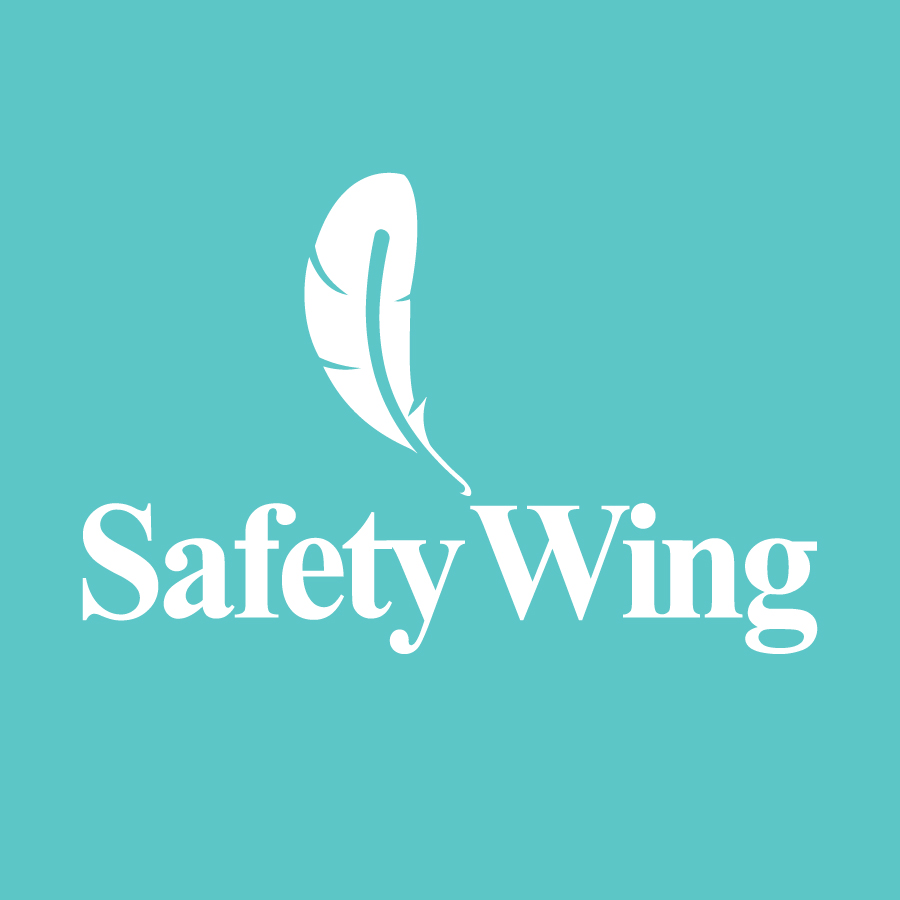
Safe to Travel – New Zealand
Is New Zealand Safe to Travel to in 2026
When considering a trip down to the serene New Zealand, the question of is New Zealand safe? Often comes to mind. It’s a country known for its stunning natural beauty, but how does it fare on the safety scale for travelers?
From the New Zealand travel advisory to the cultural norms in New Zealand, understanding what to expect can significantly enhance your travel experience, whether you’re planning solo travel in New Zealand or a family trip.

Hey there, my name is Oliver and I have been a traveller and writer for quite a number years now. I graduated from university in the UK and have been on the move ever since. I love visiting historical places and have been to 35+ countries and counting. There’s nothing better than getting to spend a month (or six) truly getting to know a place, it’s people, and local customs.
Affiliate Disclosure: Some of the links on our site are affiliate links, meaning, at no additional cost to you, we may earn a commission if you click through and make a purchase. This helps us to continue providing valuable content and supports our efforts in bringing the travel community together. We only recommend products and services we believe in and think you’ll find useful. Complete details are included in our affiliate disclaimer. Thank you for your support!
In a Hurry? Here's our Key Info for This Article
- New Zealand maintains a low crime rate
- Natural hazards like earthquakes and volcanoes are present, stay informed
- Road safety is crucial, especially in rural areas
- Health care is accessible, but travel insurance is recommended
- Respect local customs and environmental guidelines
Stay Connected
Things to Do
Essential Apps
Surfshark VPN
Stay safe online and continue accessing all your services just like back home.
Budget Tips
Understanding New Zealand’s Political Climate and Travel Advisories
When considering New Zealand safety in 2023, it’s crucial to grasp the political climate and heed any New Zealand travel advisory updates. New Zealand is renowned for its stable political environment, contributing positively to New Zealand tourist safety. However, like any country, staying informed on current events and potential advisories is wise, especially for solo travel in New Zealand.
The New Zealand crime rate is relatively low compared to global standards, making it a secure destination for travelers. Nonetheless, it’s always prudent to practice general safety measures, such as safeguarding personal belongings and being aware of your surroundings. For emergencies, familiarize yourself with emergency numbers in New Zealand. Dial 111 for police, fire, and ambulance services. Considering travel insurance for New Zealand is also advisable, offering peace of mind for health and safety in New Zealand. Cultural norms in New Zealand are welcoming and inclusive, yet understanding local customs and etiquette can enhance your travel experience.


New Zealand’s Reputation: Fact vs Fiction
| ✅ Fact | ❌ Fiction |
|---|---|
| New Zealand safety is high, making it a great destination for solo travel in New Zealand. | New Zealand is too remote to have modern emergency services. |
| New Zealand travel advisory levels are generally low, indicating it’s safe for tourists. | New Zealand crime rate is high and poses a risk to tourists. |
| Emergency numbers in New Zealand are easily accessible and operate 24/7. | Travel insurance for New Zealand is unnecessary due to the country’s safety. |
| Health and safety in New Zealand are prioritized, with excellent healthcare available. | Cultural norms in New Zealand are difficult for tourists to understand and navigate. |
| The political climate in New Zealand is stable, contributing to the country’s overall safety. | New Zealand tourist safety is compromised by the country’s political situation. |
Emergency Contacts: Numbers and Addresses
When it comes to ensuring your safety while exploring New Zealand, having a list of emergency contacts is crucial. Whether you’re hiking through the stunning landscapes, enjoying the local culture, or navigating the urban centers, knowing who to call in an emergency can provide peace of mind. New Zealand is renowned for its low crime rate and strong safety measures for tourists, including solo travelers. However, it’s always best to be prepared. Here are some essential emergency numbers and addresses:
- Emergency Services (Police, Fire, Ambulance): Dial 111
- Non-Emergency Police Number: Dial 105
- Poison Control: Dial 0800 764 766 (0800 POISON)
- Maritime New Zealand (For marine emergencies): Dial *500 from a mobile phone
- Embassy or Consulate Information: Check the local directory for the nearest diplomatic mission
Travel insurance for New Zealand is highly recommended, as it can cover unexpected medical emergencies or accidents. Additionally, familiarize yourself with health and safety in New Zealand, including local wildlife and environmental hazards. Understanding the cultural norms and political climate of New Zealand can also enhance your travel experience and safety. As an example, an overview of Malaysian safety is helpful for those who need to understand specific cultural habits before travelling to specific countries.
Remember, New Zealand’s travel advisory services are also an excellent resource for up-to-date information on New Zealand tourist safety. Stay informed, stay safe, and enjoy the breathtaking beauty of New Zealand. Always make sure to get good insurance before travelling in case of emergencies. Safetywing is a good option to look into for good coverage.
Addressing Safety Concerns for Travelers to New Zealand
When you’re plotting your journey to New Zealand, safety is likely a top priority on your checklist. You’ll be relieved to know that New Zealand ranks as one of the safest countries for tourists. However, like any travel destination, it has its own set of safety considerations that you should be aware of.
Firstly, natural hazards are a reality here. Earthquakes, although rare, do happen. Stay informed about local emergency procedures, just in case. The great outdoors, while stunning, also demands respect. If hiking or engaging in water sports, always follow local guidelines and never underestimate the weather – it can change swiftly.
Crime rates are low, but petty theft in tourist areas isn’t unheard of. Keep your belongings secure and be mindful of your surroundings, especially in crowded places. For solo travelers, New Zealand is remarkably welcoming, but standard precautions apply. Stick to well-lit areas at night and keep your wits about you. For those venturing further afield, it’s wise to research specific destinations. For instance, a South Korean safety article can offer insights for travelers considering a multi-country trip in the region.
Crime Rates
When considering a trip to New Zealand in 2026, it’s crucial to look at the crime rates to understand the safety landscape. New Zealand is generally known for its low crime rates compared to other countries. However, like any destination, it has its share of petty crimes such as pickpocketing, especially in areas frequented by tourists. For a broader perspective on safety while travelling, especially for our solo female travellers, take a look at our Phillipines article that gives you insight to crime rates that would directly affect female solo travellers.
| Crime Type | Incidence Rate | Precautionary Measures |
|---|---|---|
| Petty Theft | Low | Stay vigilant in crowded places |
| Burglary | Moderate in urban areas | Secure accommodations and valuables |
| Violent Crime | Very Low | Avoid walking alone at night in less populated areas |
| Scams | Low | Be cautious of too-good-to-be-true deals |
Overall, New Zealand remains a safe destination for travelers, with the authorities maintaining a strong presence to ensure public safety. Always exercise common sense and stay informed about the areas you plan to visit.
Cultural Norms
Understanding the cultural norms in New Zealand is crucial for ensuring a respectful and enjoyable visit. This country prides itself on a friendly and open attitude, but like anywhere, it has its own set of expectations and social rules that visitors should be aware of. Firstly, the concept of “manaakitanga” plays a central role in New Zealand’s social etiquette.
The locals have a deep respect for nature and are committed to preserving their country’s stunning landscapes. As a visitor, you’re encouraged to adopt the same attitude by minimizing your environmental impact—simple actions like recycling and sticking to marked trails in national parks make a difference.When it comes to safety, New Zealand is considered one of the safer countries to visit.
Although the crime rate is relatively low, petty theft in tourist areas can occur, emphasizing the importance of vigilance and using common sense. For solo travelers, New Zealand is a welcoming destination. The New Zealand tourist safety record is commendable, but solo travel in New Zealand, like anywhere, requires some additional precautions. Always let someone know your plans, especially if you’re heading into remote areas, and consider carrying a charged phone with emergency numbers in New Zealand saved.
Emergency Numbers in New Zealand
In case of emergency, dial 111. This number connects you to police, fire, and ambulance services. It’s a good idea to save this number on your phone as soon as you arrive. For non-urgent matters, consider visiting a local police station or medical center, where staff are usually ready to assist travelers with any concerns.
Is New Zealand Safe for Female Travelers
When pondering New Zealand safety, especially for female travelers, the consensus is reassuring. New Zealand is widely regarded as a secure destination, with a low New Zealand crime rate that makes solo travel in New Zealand a feasible and often enriching experience. However, staying informed and prepared is key to ensuring your trip is as smooth and enjoyable as possible. If you are planning on extending your trip as a female traveller, then I would suggest diving into articles such as France being safe for female travellers, in order to keep safe on your travels.
New Zealand Travel Advisory and Precautions
Before setting foot in this serene country, checking the latest New Zealand travel advisory is a wise move. While the political climate in New Zealand is stable, natural events like earthquakes can occur. Familiarize yourself with emergency numbers in New Zealand and consider travel insurance for New Zealand to cover any unexpected events. Respect for local customs and an understanding of cultural norms in New Zealand will also enhance your experience and help avoid any cultural faux pas.


Health and Safety in New Zealand
New Zealand’s natural beauty is unmatched, but it’s essential to remember health and safety in New Zealand, especially when exploring its vast wilderness. Prepare for the great outdoors by understanding potential hazards, such as unpredictable weather and rugged terrain. Ensure you have a basic first aid kit, inform someone of your travel plans, especially if trekking alone, and always stay on marked trails. Tap water is generally safe to drink, but it’s always good to check local advisories.
Understanding Risks
While New Zealand’s crime rate is low, no place is entirely devoid of risk. Petty theft can occur in busy tourist areas, so keep your belongings secure and be mindful of your surroundings. Solo travel in New Zealand is largely safe, but it’s always smart to follow general safety tips such as not walking alone at night in unfamiliar areas. For peace of mind, carry a phone with you at all times, with emergency numbers in New Zealand saved.
New Zealand Safety Final Thoughts
When assessing New Zealand safety for your upcoming travels, it’s clear that this country stands as a beacon for both solo adventurers and families alike. With a relatively low New Zealand crime rate, the focus shifts towards enjoying the breathtaking landscapes and rich cultural experiences. However, staying informed through the New Zealand travel advisory and being aware of emergency numbers in New Zealand enhances your journey, ensuring peace of mind.
Navigating through New Zealand, from bustling cities to serene landscapes, calls for a basic understanding of health and safety in New Zealand, including travel insurance for New Zealand. Acknowledging cultural norms in New Zealand and the political climate enriches your travel experience, making it not only safer but also more meaningful. Remember, preparation is key to a seamless adventure in this stunning country, ensuring that your memories are of the scenery and hospitality, not the mishaps.
Is New Zealand Safe to Travel to in 2026 FAQ
Generally, New Zealand is considered a safe destination with low crime rates. However, like anywhere, petty theft and tourist-targeted scams can occur, especially in crowded areas. Always keep an eye on your belongings.
New Zealand’s landscapes are relatively safe to explore, but it’s crucial to be prepared. Weather can change quickly, especially in mountainous areas, so check forecasts and inform someone of your plans. Stick to marked trails to avoid getting lost.
Yes, solo travelers find New Zealand welcoming and safe. It’s advisable to follow basic safety tips like sharing your travel itinerary with someone you trust and staying aware of your surroundings, especially at night.
New Zealand is among the safer countries for travelers. For a comparison, you might consider looking at a Belgium safety overview. It’s always wise to check travel advisories and local news for the most current information.













